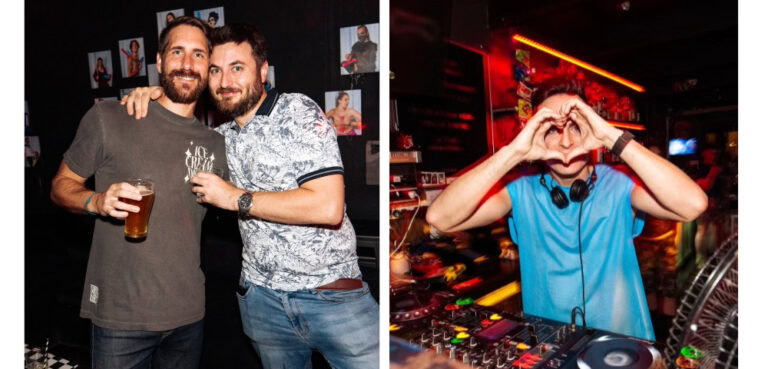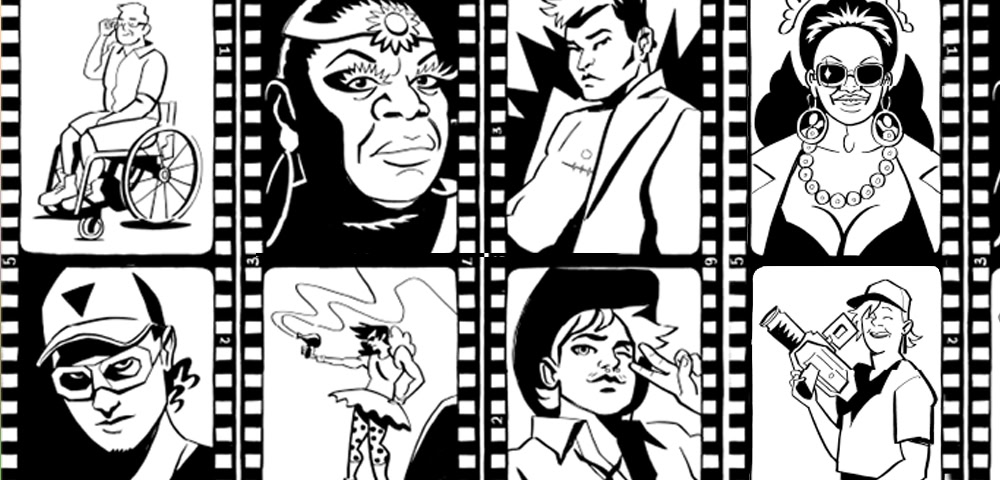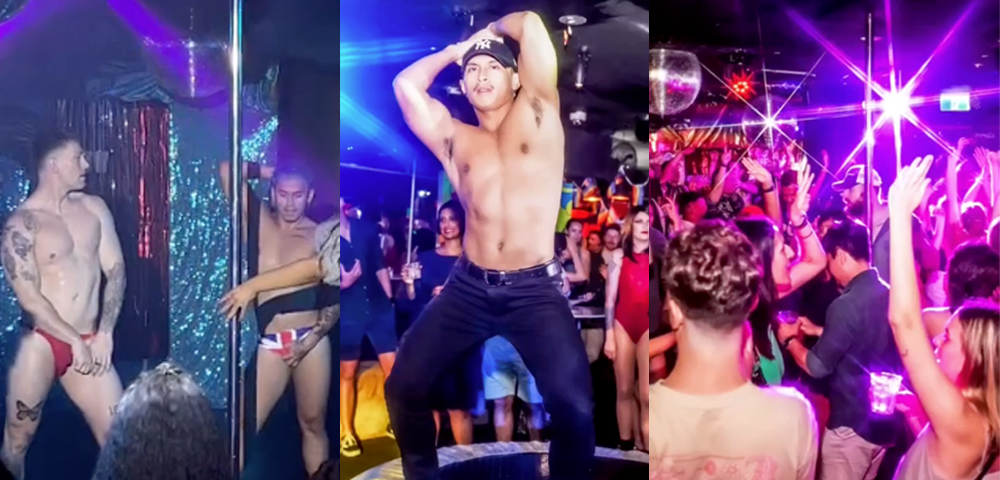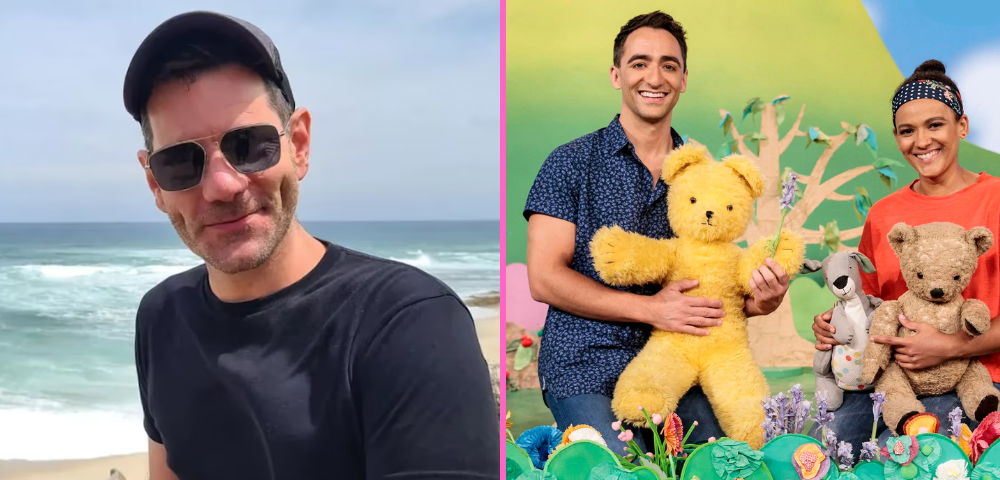
Stamping out homophobia in the classroom through AFL

In my high school days, I remember thinking that I would sooner end my life than let anyone find out that I was attracted to boys.
The most cutting insults that could be directed towards male students were ‘fag’ or ‘poof’. Similarly, the words ‘dyke’ or ‘lez’ were thrown at girls who dared stray away from any stereotypically feminine behaviour.
The most popular adjective used by kids at school was ‘gay’ and this was used to mean bad, stupid, or dumb. That book is gay. Your hair looks gay. Homework is gay. Don’t be gay.
Is it any wonder that the national report on the sexual health and wellbeing of same-sex attracted and gender questioning young people in Australia, ‘Writing Themselves In’, has repeatedly found higher rates of self-harm and attempted suicide amongst this cohort?
Also highlighted in this research is the impact that homophobia and transphobia has on a young person’s ability to learn. 33% of same-sex attracted students said they had trouble concentrating in class, 24% saw their marks drop, and 20% missed days off school.
Some young people even reported having to move schools or drop out altogether because of both verbal and physical homophobic or transphobic assault.
In a way, I was one of the lucky ones.
Because I was a good footballer and played in the 1st XVII squad, I was able to hide and was shielded from some of the worst homophobic bullying experienced by other students at my school. But still the general culture of homophobia, rarely challenged by teachers or the school establishment, led me to feel shame about who I was and forced me to hide my sexuality from all bar a few close and supportive friends.
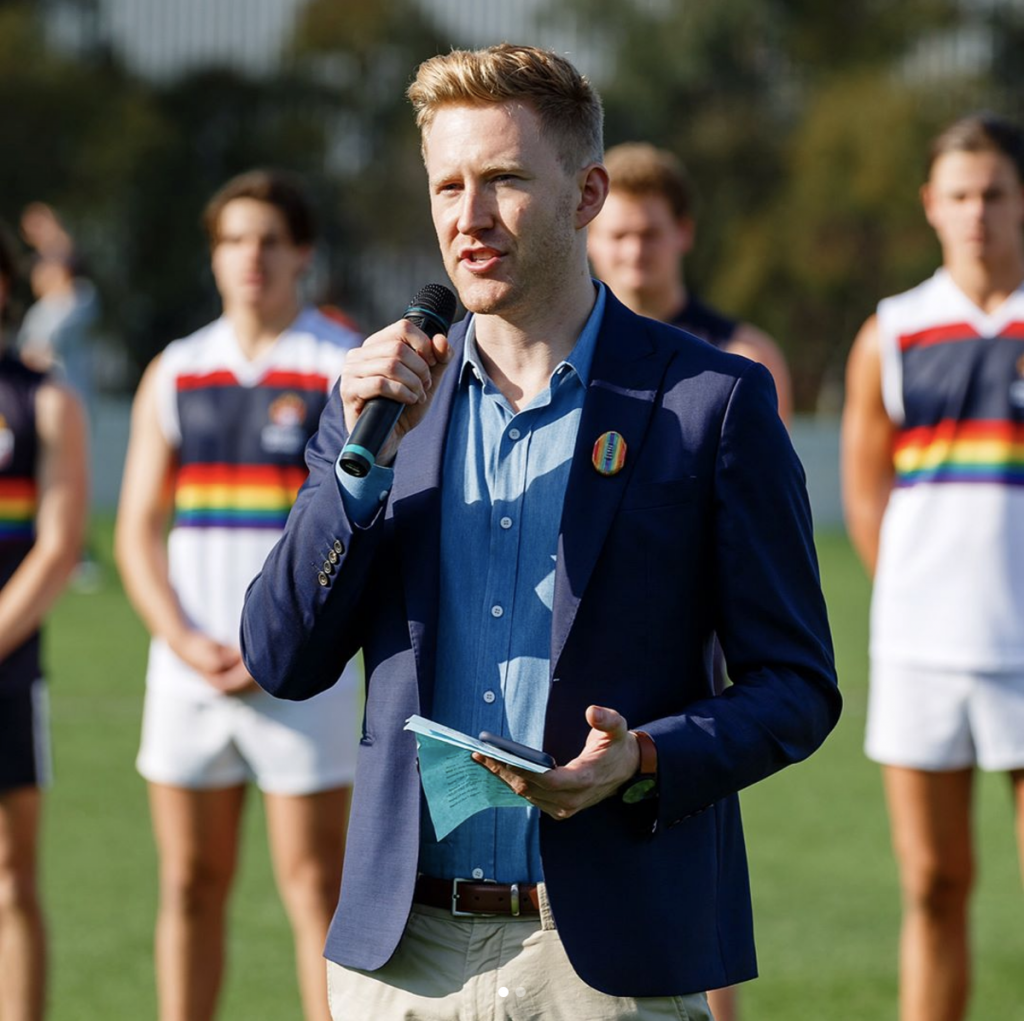
What I needed when I was at school was to see teachers and staff show zero tolerance towards homophobia. I needed other students to understand the damaging impact their language was having on one of their closest friends.
And what I needed more than anything was a role model. I needed to know that I could be gay and still have friends and a happy life. I needed to know that I could be gay and still play football. I needed to know that one day I could come out to my football teammates, and that it wouldn’t be a big deal.
This is why since coming out in 2012, I have shared my story to over 100 schools in Victoria.
As the first ambassador for the Safe Schools Coalition, I made it my mission to educate principals, teachers, and students about the damaging impact of homophobic language and the value that comes from fostering a respectful and inclusive school culture that embraces diversity. I made it my mission to be a role model for the 12-year-old Jason in school today, and to offer him a message of hope.
Speaking with young kids who have said that hearing my story gave them the courage to come out to their friends, their families, or even their football teammates is what has kept me going on the long drives from Warrnambool to Wodonga in regional Victoria.
After speaking to a school, my inbox often fills up with emotional messages from students and even teachers who want to say thank you. They tell me that my presence was the first time that anything positive about LGBTI people had been said during a school assembly.
They also tell me that the school is now abuzz with ideas and enthusiasm about how to make their environment safer and more inclusive for same-sex attracted and gender diverse students. They tell me that they can’t believe it has taken this long for such a conversation to begin, but that they feel incredibly affirmed, optimistic and excited that it finally has.
I have been told that one of the reasons my experiences have been able to cut through and resonate with so many schools around the state, is because my story is about AFL.
No other sporting code in Australia exhibits the reach in terms of players and supporters nor the cultural influence of AFL. The shared love of AFL is what brings many people together, and helps us understand our common humanity despite our differences. The typical footy fan could be male or female, of any age, race, or cultural background.
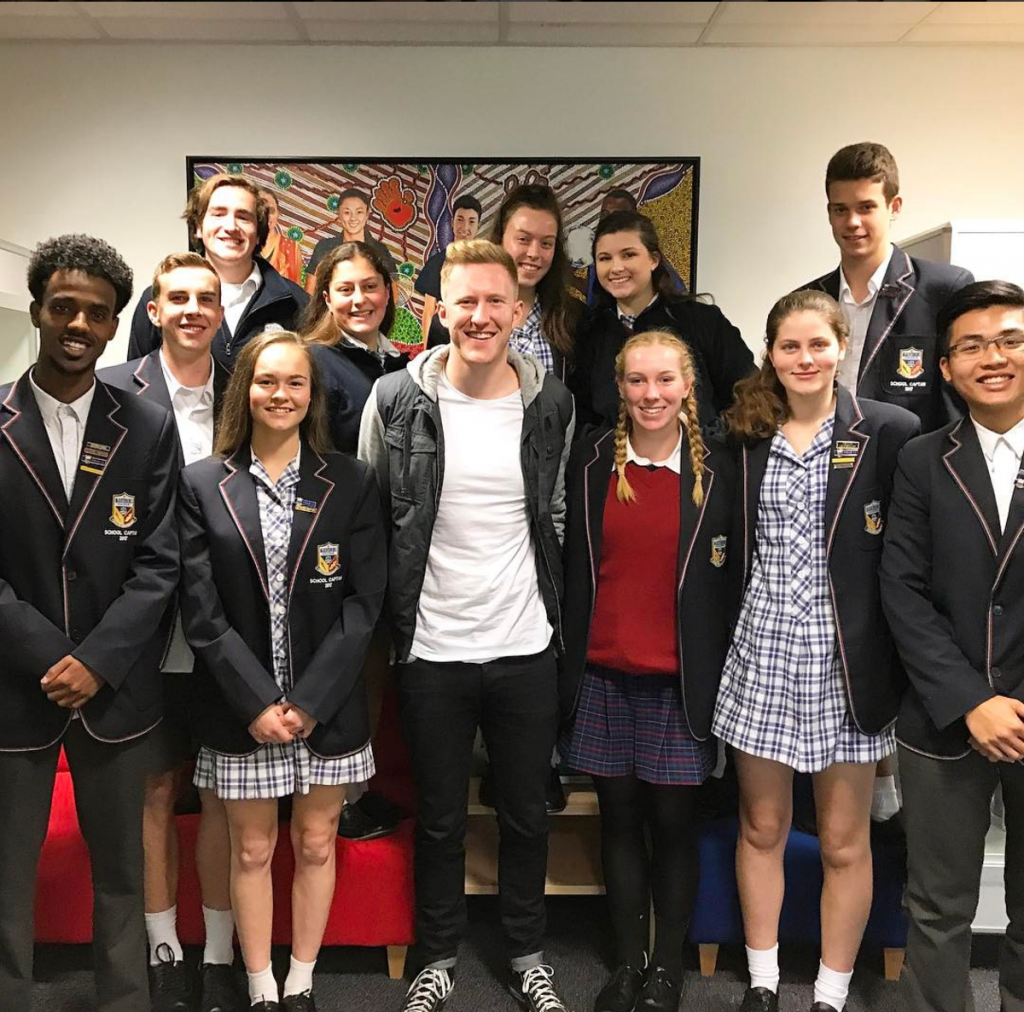
As comedian David Greene once said: “AFL is probably the only thing that can cause the same excitement in a 7-year old boy from Darwin and an octogenarian war widow from Bendigo”.
A story about finding acceptance and belonging in Aussie Rules football; a setting that so many Australians care about and can relate to, but is also one that historically has never been considered ‘welcoming’ for LGBTI people, is incredibly powerful.
For school audiences, my teammates represent the ideal ‘straight ally’. They give permission to others, particularly young men, to say no to homophobia, teaching them that to be accepting of gay people won’t make them ‘less of a man’ but rather it means that they are good blokes who are prepared to stick up for their mates.
I talk a lot about my dark times, but I also talk at length about my journey towards self-acceptance. I talk about the moment when I realised that I only live one time, so I may as well do what makes me happy and be the person that I am, and worry less about what others think of me.
A story about finding acceptance within a country football club offers a gay student hope that they too can find acceptance regardless of where they live. And even while homophobia is still entrenched in some pockets of Australia, including our laws, it’s also important to offer that message of hope.
It’s important to know that a lot of homophobia comes from a place of ignorance rather than hatred. A lot of the time the fears we build up in our head about how we’ll be received when we come out turn out to be unfounded, and many of us wish that we had come out much earlier in our lives than we did.
In Australia today, not only do a majority of people now support marriage equality, but so too do a majority of Christians and Liberal voters.
Last year, the AFL held its first-ever Pride Game, where the 50m line was painted in a rainbow. In country towns, ‘Pride Cups’ are being held by football clubs in places like Hamilton and Traralgon, sending a much-needed messages of acceptance and hope into regional areas.
We should always call out and never seek to downplay homophobia or transphobia when it occurs, whether it comes from Margaret Court or Sam Newman. Equally important however, is to recognise that thanks to the hard work of so many advocates and organisations, including AFL clubs, attitudes towards LGBTI people in Australia really are changing, and life for LGBTI Australians really is getting better.
One day, we will live in a world where we don’t need a Pride Game, and where an AFL player will come out and it won’t even be a news story; it will just be part and parcel of the rich diversity of our game.


